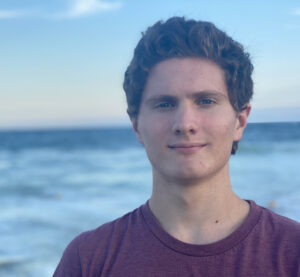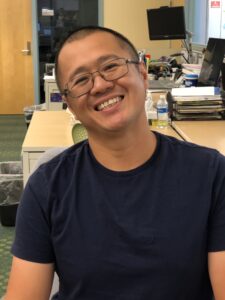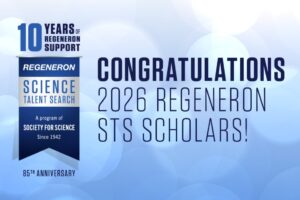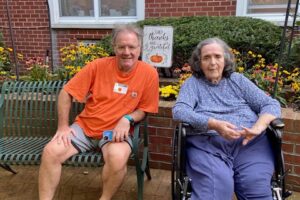Through the generous support of Regeneron, four times a year River Journal publishes the on-site report of a high school science student from the River Towns who is paired with a Regeneron scientist to experience what it is like to put STEM education to work in the real world.

When my science research teacher at Croton Harmon High approached me with an opportunity to talk to a Regeneron scientist, I was excited. I have always been passionate about science and math, and I thought speaking to a researcher would be fascinating. It was.

Hock E, who studies oncology at Regeneron, gave me insight into how his innovative research is conducted, and what the daily life of a scientist working at a pharmaceutical company looks like.
In studying cancer treatments, Hock works with “humanized” mice, which are genetically modified with human genes. It allows their immune systems to release human antibodies in response to certain drugs.
HIGH-SPEED RESEARCH
Hock explained that, while the modified mice are costly and difficult to create, compared to more traditional oncology methods, research with the specialized mice is significantly faster and more efficient.
My conception of what pharmaceutical research looks like did not reflect the reality. Many of us imagine pharmaceutical research as a bunch of scientists holding clipboards and standing around in lab coats, staring at beakers of bubbling fluid all day.
Apart from his Monday meetings, where he discusses the agenda for the following two weeks with his team, Hock spends most of his time in the animal room conducting his research.
One thing that Hock said that stood out to me is the emphasis Regeneron places on a family culture in the workplace. He highlighted the delicious free food, and the coffee lounge where you can relax and talk to other researchers from a variety of departments.
BOTANY FAN
Hock told me he wasn’t always interested in research. In high school, he was fascinated with botany. He found his passion for animals and biology when he was told to catch a frog and dissect it in anatomy class.
Hock advised me that keeping an open mind and not shying away from trial and error is key in finding a career that is right for you. He also emphasized the importance of finding a mentor that can guide you and help forward your career.
CRITICAL CARE
I asked Hock what a career in science means to him. He told me that any position in research or medicine, whether you are an assistant lab technician or the head of the department, plays a crucial role in helping those who are suffering from cancer.
Cancer is a blind disease; it doesn’t care if you are old or young, rich or poor, and can affect anyone at any time. Hock told me that the greatest satisfaction of working in research comes from knowing that you are contributing to a global effort to find a cure.
My conversation has certainly furthered my interest in pursuing a career in research, and has given me a valuable perspective into what a career as a scientist could look like.
I extend great thanks to Regeneron and Hock for providing me with this valuable insight and great opportunity to learn more about the research process.






